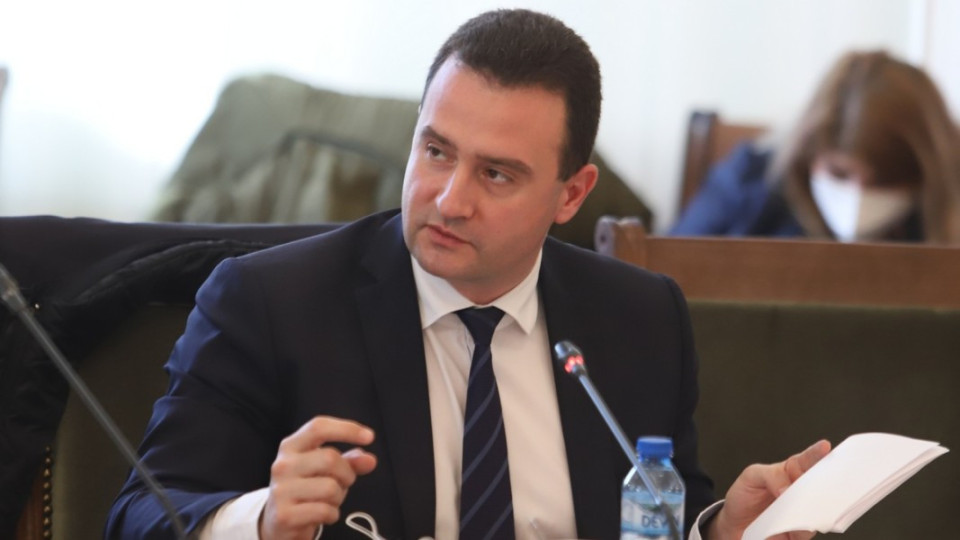BAKU, Azerbaijan, April 4. Bulgaria is actively working on infrastructure development to get additional gas from Azerbaijan, Zhecho Stankov, Bulgaria’s Minister of Energy, said in an exclusive interview with Trend on the occasion of the Southern Gas Corridor Advisory Council’s meeting in Baku.
“Azerbaijan is a strategic economic partner of Bulgaria. There is excellent economic cooperation between the two countries and the energy sector occupies a key place in bilateral relations. Azerbaijan plays an important role as a source for diversification of natural gas supplies and enhancing energy security in our country and the South East Europe region. Energy transition is not possible without ensuring national, regional and international energy security. Projects such as the Southern Gas Corridor are a key factor in deepening regional cooperation, and diversified natural gas supplies from the Caspian region provide better conditions for businesses and consumers,” he said.
Stankov pointed out that Bulgaria is an important part of the development of the strategic Southern Gas Corridor project through the Greece-Bulgaria interconnector, which ensures the transmission of the raw material to Europe.
“Our country supports the expansion of the Southern Gas Corridor, which will provide the opportunity to supply additional quantities of natural gas to Europe. To carry out these priority tasks, we are actively working to develop the country's gas infrastructure. One of Bulgaria's main priorities in the energy sector is the diversification of the sources and routes of energy resources, which will guarantee security and competitive prices for Bulgarian consumers. In the context of the European goals of building an interconnected and unified pan-European gas market and strengthening energy security, our country is pursuing a consistent policy of gas infrastructure development - modernization and expansion of the national gas transmission network and construction of reverse gas connections with neighbouring countries,” said the minister.
He recalled that Bulgaria was one of the first countries to sign a contract with Azerbaijan for natural gas supplies from the Shah Deniz field.
“We are actively working on the development of the gas infrastructure, which will allow us to transport additional quantities from Azerbaijan and other sources - a key condition for real diversification of sources and routes of natural gas supply. It is our firm belief that regional cooperation is one of the leading factors for successfully addressing energy security challenges,” said Bulgaria’s energy minister.
He pointed out that Bulgaria has repeatedly stated its interest in increasing the quantities of natural gas supplied from Azerbaijan.
“This is a leading factor for ensuring energy security not only in Bulgaria but in the whole region of South-Eastern Europe. In the context of the hostilities in Ukraine and the volatility of energy prices, opportunities for new quantities from a strategic partner like Azerbaijan become even more important. Therefore, we will continue to work to secure supplies that will guarantee us security and competitive gas prices,” noted Stankov.
Expanding cooperation with SOCAR
The minister said that last year, SOCAR supplied and traded approximately 1 billion cubic meters of natural gas annually at the Balkan Gas Hub, in addition to the 1 billion cubic meters per year delivered under Bulgargaz EAD’s long-term contract with the Shah Deniz consortium.
“We expect these gas volumes traded by SOCAR at the Balkan Gas Hub to be maintained and even increased in the coming years. We would like to expand cooperation with Baku in promoting gasification and facilitating SOCAR’s entry into gas distribution activities in Bulgaria, such as the gasification of the town of Panagyurishte, along with other cities,” he added.
Stankov recalled that during COP 29 in Baku, in the presence of President Rumen Radev and President Ilham Aliyev, a binding agreement was signed for the development of residential and public gasification in the municipality of Panagyurishte.
“The agreement was concluded between SOCAR and Assarel-Medet, a Bulgarian company engaged in copper and other ore mining. In July, a contractor for the municipality’s technical design is expected to be selected,” he said.
The minister pointed out that as an EU member state, Bulgaria offers a premium energy market with stable and predictable legislation.
“We also support SOCAR’s hybrid gasification project in Bulgaria, which enables industrial and social consumers not connected to the transmission and distribution network to receive Azerbaijani gas via CNG deliveries. This project is a tangible contribution by SOCAR to promoting gasification in Bulgaria. Additionally, we support SOCAR’s potential expansion into Bulgaria’s fuel market, including the supply of diesel, gasoline, aviation fuel, and petrochemical products,” Stankov explained.
Green Energy Corridor project
Bulgaria’s energy minister noted that the Green Energy Corridor project aims to strengthen national and regional energy security by diversifying energy supply sources and leveraging the renewable energy potential of the Caspian region.
“Last year, the Bulgarian government approved the acquisition of a 20% stake in the joint venture for the project’s implementation through BEH EAD. We consider this a key decision for Bulgaria’s full participation in the initiative. Bulgaria has a well-developed electricity transmission system, interconnections with neighboring countries, and energy storage infrastructure, making it a strong and active player in the Green Energy Corridor project,” he explained.
Stankov pointed out that upcoming large-scale investments in grid digitalization, along with the plans to develop three new pumped-storage hydropower plants (PSHPPs)—one of the most sustainable technologies for producing and storing green energy—position Bulgaria as a significant partner in the project’s realization.
“The Green Energy Corridor initiative will enable Southeast Europe to fully benefit from increased green energy trade opportunities, which is crucial for the region’s energy security,” he concluded.
Follow the author on X: @Lyaman_Zeyn







